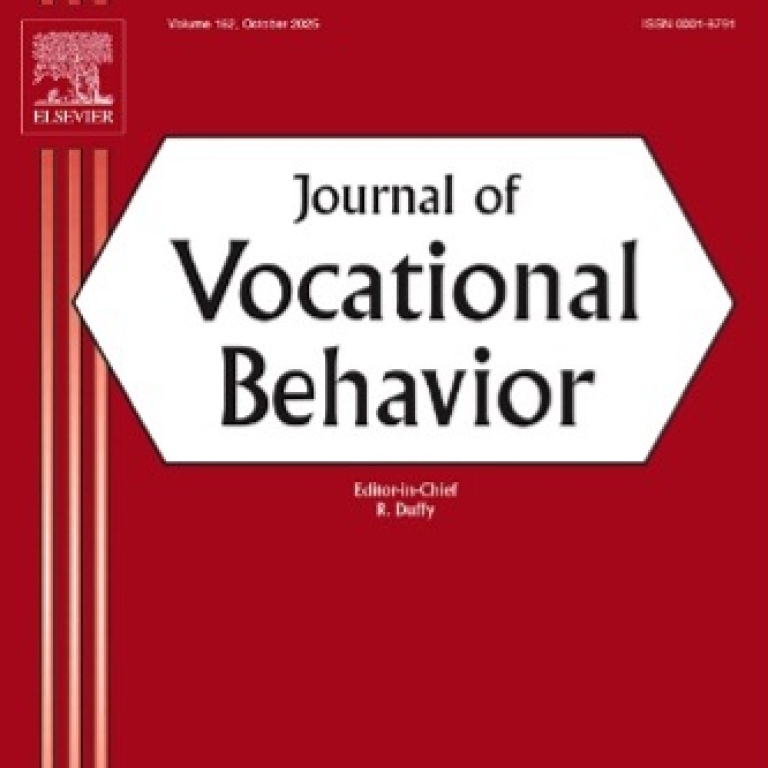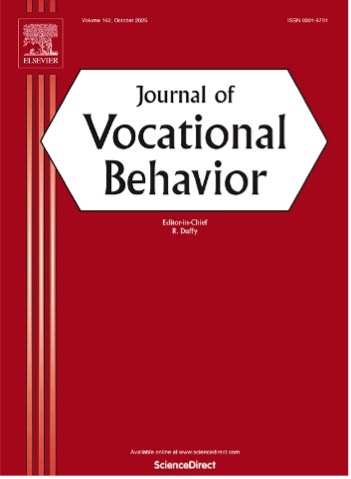In this study, we explore how gig workers employed by so-called umbrella companies (egenanställda in Swedish) understand and navigate their work arrangement.

Journal front cover
The findings challenge the dominant view of gig work as inherently precarious, showing that workers can develop meaningful and sustainable careers within this context. Participants viewed umbrella companies as facilitators of flexibility and individualization, which enhanced their person–career fit. At the same time, they recognized the limitations and broader societal implications of this work arrangement.
Main findings
Employed gig work supported participants in exploring something new in times when they perceived their standard careers as unsustainable. On this quest, participants perceive themselves as not being bound by anything else than their capability to shape their work environment.
Self-employment acts as a main reference point. Umbrella companies foster the important relational connection between client and employed gig worker and enable workers to break free from the conventions of self-employment.
While employed gig work does not offer objective security, it can provide subjective security to those not having better alternatives.
While, theoretically, employed gig work should fit everyone, it practically appears to only fit particular needs and preferences.
Why it matters
Our research illustrates how gig work, in specific circumstances, can be perceived as meaningful and sustainable. Building sustainable careers in gig work rests on the idea that meaning can be experienced rather briefly and that it can be found in the idea of betterment, rather than in finding the perfect career (fit).
Reference
Müller, F., Weidenstedt, L., Bernhard-Oettel, C., & Eib, C. (2025). Under my umbrella? Gig workers’ perspectives on career sustainability as employees in Swedish umbrella companies. Journal of Vocational Behavior, 163. doi: 10.1016/j.jvb.2025.104182
Last updated: October 10, 2025
Source: Department of Psychology
eventNewsArticle
standard-article
false
{
“dimensions”: [
{
“id”: “department.categorydimension.subject”,
“name”: “Global categories”,
“enumerable”: true,
“entities”: [],
“localizations”: {}
},
{
“id”: “department.categorydimension.tag.Keywords”,
“name”: “Keywords”,
“enumerable”: false,
“entities”: [],
“localizations”: {}
},
{
“id”: “department.categorydimension.tag.Person”,
“name”: “Person”,
“enumerable”: false,
“entities”: [],
“localizations”: {}
},
{
“id”: “department.categorydimension.tag.Tag”,
“name”: “Tag”,
“enumerable”: false,
“entities”: [],
“localizations”: {}
},
{
“id”: “webb2021.categorydimension.Category”,
“name”: “News Category (Webb 2021)”,
“enumerable”: true,
“entities”: [],
“localizations”: {}
},
{
“id”: “webb2021.categorydimension.Label”,
“name”: “Etiketter (Webb 2021)”,
“enumerable”: true,
“entities”: [],
“localizations”: {}
},
{
“id”: “webb2021.categorydimension.Label.en”,
“name”: “Labels (Webb 2021)”,
“enumerable”: true,
“entities”: [
{
“id”: “webb2021.categorydimension.Label.en.EnvTox”,
“name”: “Organization and Working Life”,
“entities”: [],
“attributes”: [],
“childrenOmitted”: false,
“localizations”: {}
}
],
“localizations”: {}
},
{
“id”: “webb2021.categorydimension.Keyword”,
“name”: “Keywords (Webb 2021)”,
“enumerable”: false,
“entities”: [],
“localizations”: {}
}
]
}

